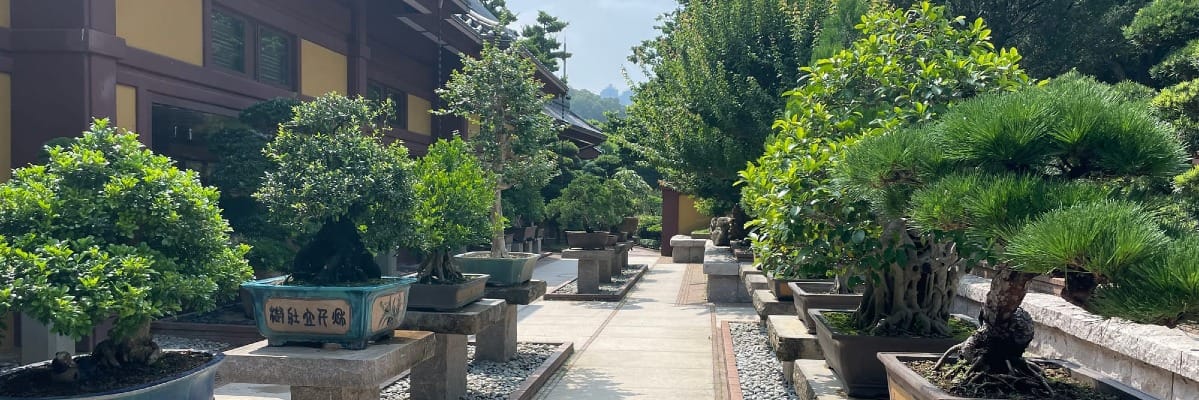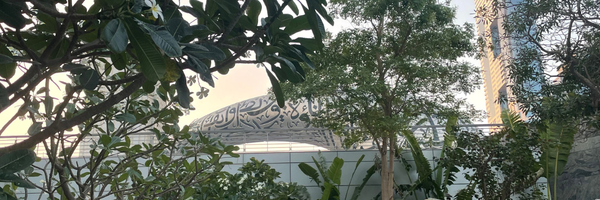Tend Your Inner Garden: A Mental Health Practice for Every Season of Life
We often treat our mental health like a problem to be "fixed" or a machine that needs to perform 24/7. What if the goal isn't to force constant sunshine, but to learn the gentle, continuous practice of caring for ourselves through all of life's cycles and seasons?

Today is World Mental Health Day. It's a day to remember that our inner world deserves as much care as our outer one. According to the World Health Organisation, nearly one in eight people globally live with a mental health condition. This isn't a statistic about a small group of people; it's a reflection of the human condition. The need to care for our minds and find balance and peace is universal.
Think of your mental health as a private, inner garden.
My paternal grandfather was, among many things, a farmer. He'd know everything about olive trees, cycles, timing, and would live according to it. He'd go through his entire land every single day —no matter what— to care for his plants, trees and crops. He'd often take me with him. Every walk was a lesson opportunity.
I carry these precious lessons with me to this day. Perhaps the most important one is that diversity makes unity. Some plants thrive in the sun, while others do best in the shade. And yet, they can co-exist in the same garden. This is what happens with our health: we must tend to the details so we can benefit the whole. By doing so, we will certainly feel more vitality, perform at our best, and contribute to our longevity.
Our mental health is like a garden. Sometimes it's in full, vibrant bloom. Other times, the soil is dry, weeds creep in, and the sky feels grey. This is normal. You are not a machine; you are a living ecosystem. The goal isn't to have sunshine 24/7, but to become a wise and compassionate gardener for yourself, capable of tending to the soil in any weather.
Unleash the Dragon Within
One of the key secrets to a healthy garden, besides love? Flow.
In Eastern wisdom, and a core concept in Traditional Chinese Medicine (TCM), health is about the unimpaired, smooth flow of energy, or Qi. It's the water that nourishes the roots and the air that lets the leaves breathe. When we feel stuck, anxious, or burnt out, it's often because our flow is blocked.
Mental health isn't a destination; it's the continuous, gentle practice of gardening. Much like in martial arts, it's the small, daily acts of care that create resilience and cultivate inner peace.
Here are three simple ways to remove stagnation and actively care for your inner garden.
1. Observe the weather
You cannot tend a garden without first looking at it. This might be especially challenging for the high-achiever pushing through fatigue or the student overwhelmed by deadlines.
How to do it: Pause for just 60 seconds. Close your eyes. Don't try to fix anything. Simply observe. Is your inner weather stormy? Sunny? Foggy? Are your shoulders tight? Is your breathing shallow? Just notice. By observing without judgment, you give the storm space to pass instead of letting it flood the entire garden.
Great! You've just done the hardest thing, a mindful self-check-in.
2. Pull one weed
When you look at a garden full of weeds, the task can feel overwhelming. The secret is to just pull one. This must be the central focus for the young person navigating big emotions or anyone feeling completely stuck.
How to do it: Ask yourself, "What is one small thing I can do right now to feel 1% better?" It's not about solving the whole problem. It's about clearing one tiny weed. Examples: Step outside for three deep, abdominal breaths. Drink a full glass of water. Stretch your arms to the sky. Send a text to a friend you trust. Small actions create momentum and let the light back in.
Look at that! You've just completed a real, actionable micro-step.
3. Trust the natural cycles
A garden has seasons. There are times for growth, times for harvest, and essential times for rest and dormancy. You cannot be in a perpetual summer bloom. This is especially important to acknowledge for our seniors navigating change or anyone going through a major life transition.
How to do it: Gently remind yourself that this phase is temporary. Winter is not a failure of the garden; it is a necessary part of the cycle that allows for a powerful spring. Instead of fighting the season you are in, ask, "What does this season have to teach me?"
Well done! You've just embraced the art of active acceptance.
Your Garden Awaits
Mental health isn't a destination; it's the continuous, gentle practice of gardening. Much like in martial arts, it's the small, daily acts of care that create resilience and cultivate inner peace.
So, I ask you: What is one weed you can pull today?
If you feel overwhelmed by the question, let's talk. I'm offering a complimentary 1-on-1 session to the first three people who need an extra pair of hands to cultivate their inner world more deeply. This is a chance for us to work together and find the biggest weed that's blocking your flow. You'll walk away with actionable tips and tools that help you remove it.
If you feel you need help to tend your inner garden, I'm here to help.
I'm offering a complimentary 1-on-1 clarity session to the first three people who reach out.
Use the code Mental-Health-Day-2025.
In this session, we will:
- Identify the single biggest "weed" blocking your flow.
- Map out a simple, actionable plan to start removing it.
- Connect the wisdom of this work to your unique life.
I am looking forward to working together.


